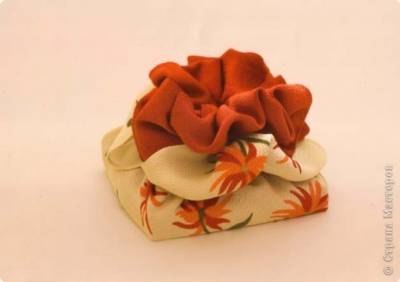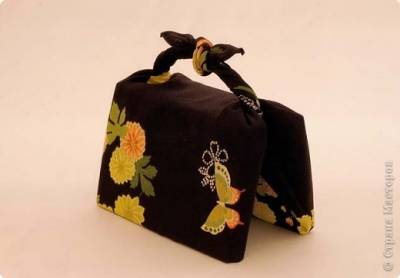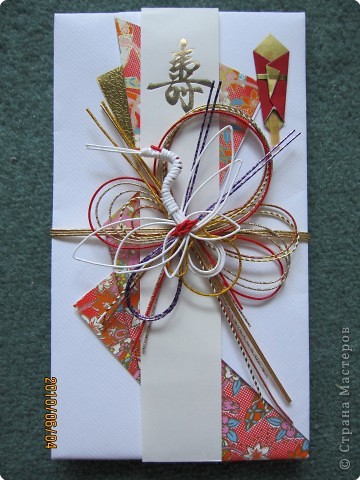Yes, Japanese people often give presents to each other. They do enjoy it and present relatives, colleagues, bosses, guests and neighbors with all possible gifts on various occasions. There are certain rules connected with the process of gift giving.
One should offer his or her present with a bow and say the following: “Hon no kimochi des. Tsumaranai mono des. Doozo”. It means: “It’s just a small token of gratitude. A very boring thing. Take it, please.”
A gift should be received with a bow and thanks (all polite words will be OK, for example, “Doomo arigatoo”).
It’s considered polite and natural to wrap all gifts in bright paper or put them into cute boxes.

Gifts are often wrapped in “furoshiki” - traditional Japanese wrapping cloth.


The Japanese often present each other with cash. Money should be put into beautiful small envelopes and tied with ribbons. By the way, it’s very important to choose the colour of ribbons properly. On happy occasions (the New Year, a wedding, a birthday, etc.) they should be red or gold. If you are invited to a funeral, the ribbons should be silver or black. Yes, according to Japanese customs a funeral is an appropriate time to present the family of a deceased man or woman with gifts to help them overcome the great loss.

Gifts are always given and received with both hands.
There are certain traditions of gift giving. For instance, if you’ve recently moved into a new house, you should get acquainted with all people who live nearby and present them with good coffee, sweets, alcohol or some household items.
If someone goes traveling, he or she must return with small souvenirs for parents, children and neighbors. They are called “omiyage”.
There are a lot of holidays in Japan. Some of them have European origin and the gifts for such occasions don’t differ much from the things we like to give and get. For example, chocolate is a very popular gift. Japanese men always present women with chocolate on March 14 (White Day – woman’s holiday).
But on the 14th of February (Valentine's Day) WOMEN present the males they appreciate and respect with chocolate.
Chocolates can be different. Colleagues, bosses, brothers are presented with cheap “giri-choco”. (“Giri” is translated as “obligation”)
The beloved are presented with expensive or home-made chocolates – “honmei-choco”. (“Honmei” is “a prospective winner” in Japanese). If a man doesn’t get a single “giri-choko”, he will be very frustrated and embarrassed.

In addition to official holidays and single important occasions there are special “seasons” of gift giving. They are called “Ochugen” and “Oseibo”. The former takes place in June (one half of the year is over) and the latter – in December (the year is over). All gifts will be suitable to thank others for help and support.












